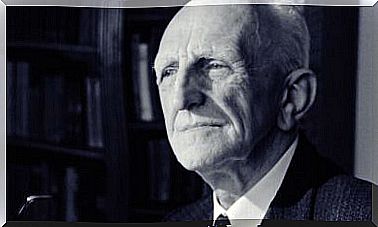What Is The Mere Exposure Effect?

Has it ever happened to you that a song that was indifferent to you, based on listening to it, has ended up liking you? Have you felt that the more time you spent with a person, the more pleasant they were? In the study of human preferences, the effect of mere exposure has acquired relevance.
Also known as the familiarity principle, this effect explains why by repeatedly exposing ourselves to a novel stimulus, our response to it becomes more positive.
In short, it reflects our predilection for those situations, people or objects that are familiar to us. But what factors influence the appearance of this phenomenon? Let’s get to know in depth how it works.

The effect of mere exposure in research
Robert Zajonc is one of the authors who has studied this particular psychological effect the most. Since the first investigation in 1876, the presence of this preference to stimuli of a very diverse nature has been verified.
Words, sounds, photographs of faces… in all cases the subjects seem to favor those that are more familiar to them.
A study was conducted to test the influence of this effect on predilection for certain foods. For this, a group of students were given to try various tropical juices that until then were unknown to them. Some tried them five times, others 10 and others 15. When asked which one they liked the most, there was a clear tendency to judge as more positive those who had taken the most times.
The same results have been obtained in research on interpersonal attraction. The more often we see a person, the more likeable they seem to us and the more we like their presence.
An unconscious phenomenon
But one of the most interesting aspects of this effect is that it is not necessary for the person to perceive the familiarity in the stimulus. What’s more, the effect seems to be enhanced under “subliminal conditions. “
Zajonc carried out an investigation in which he showed the participants various images of Chinese characters. The exposure time to each symbol was so short that the observers were not aware of what they were seeing.
Subjects were told that these characters represented adjectives and were asked to assess whether they had positive or negative connotations. Invariably the test group participants gave better marks on those symbols to which they had already been exposed.
Clearly, brands take into account the effect of mere exposure in their advertising campaigns. Familiarity with a logo, slogan, or corporate image can lead us to choose that particular product.
This mental way of working would explain why, when we tour new cities, we are tempted to go to the franchises we know… despite our desire to explore the local market.

What is the effect of mere exposure due to?
Fechner was the author of the first known research carried out on this phenomenon. This German psychologist, father of current psychophysical theories, offers an explanation for the effect that concerns us today. People tend to react with some fear or anxiety to new elements.
However, this “phobia of the new” fades as we repeatedly expose ourselves to these stimuli. This natural tendency to be suspicious of the unknown even becomes a pleasant feeling of familiarity the more contact we have with the element.
However, we must bear in mind that, if repeated exposure to the stimulus occurs in excess, we can become bored. Satiety is a condition that limits the impact of this effect. If we eat the same thing every day, we end up hating it: if we watch the same movie every day it ends up being heavy.
Therefore, at the base of many of our preferences is this principle of familiarity although we are not aware. Regardless of our greater or lesser taste for adventure and risk, several of the decisions we make on a daily basis are mediated by this effect.
The objects we acquire, the places we frequent, and the people we like can all be affected by this principle. That is why it is convenient or, at least interesting, to become aware of its influence on our mind.









